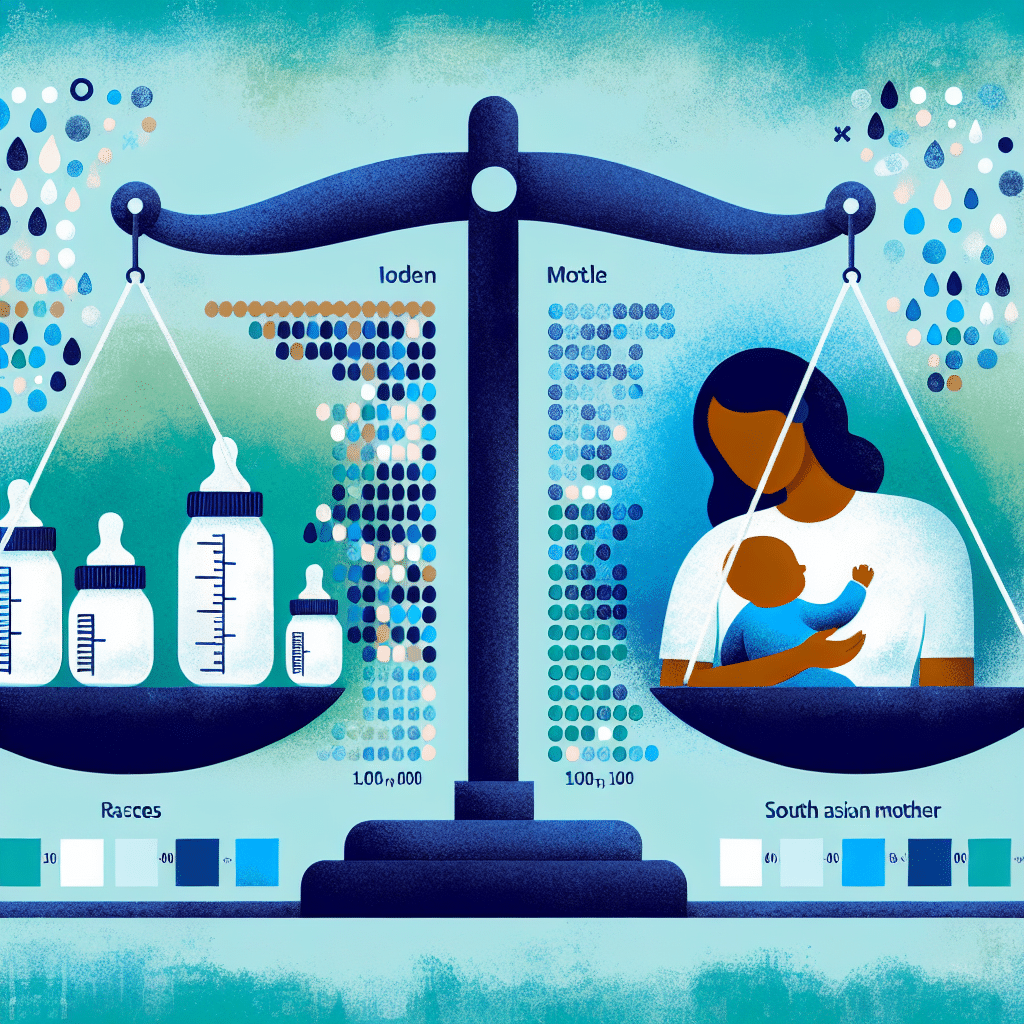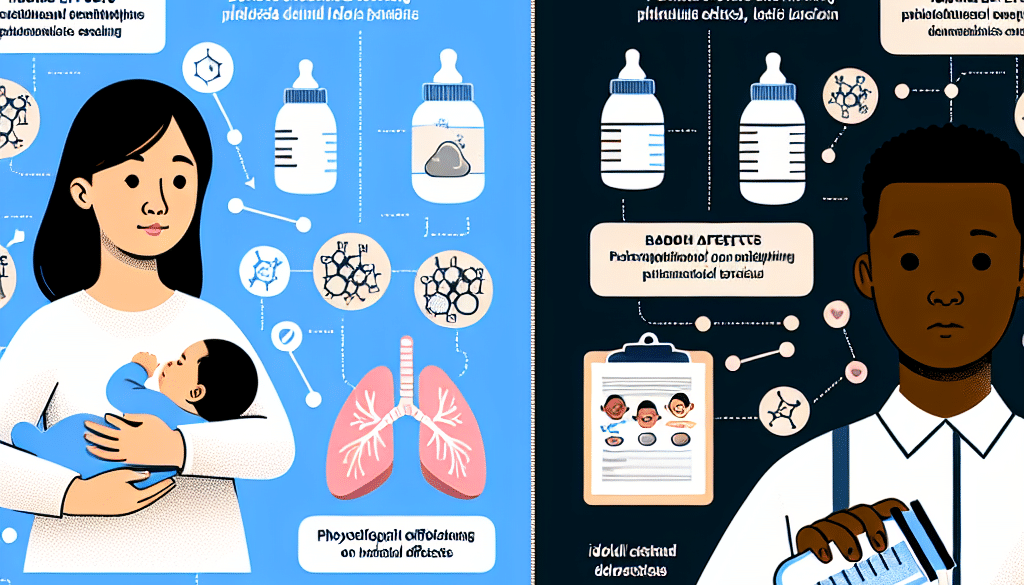Breastfeeding vs. Formula: Comparing Iodine Status Impact
-
Table of Contents
- Breastfeeding vs. Formula: Evaluating Iodine Status Impact
- Understanding Iodine’s Role in Infant Development
- Breastfeeding and Iodine: A Natural Source
- Formula Feeding and Iodine: Fortification Matters
- Comparative Studies on Iodine Status in Infants
- Addressing Iodine Deficiency: Public Health Interventions
- Conclusion: Balancing Breastfeeding and Formula for Optimal Iodine Intake
- Enhance Your Diet with ETprotein’s High-Quality Protein Products
Breastfeeding vs. Formula: Evaluating Iodine Status Impact

When it comes to infant nutrition, the debate between breastfeeding and formula feeding is one that has persisted for decades. While both methods have their advantages and disadvantages, one aspect that often gets overlooked is the impact on iodine status in infants. Iodine is a critical micronutrient for proper thyroid function and brain development, especially in the early stages of life. This article delves into the comparison between breastfeeding and formula feeding in terms of iodine status impact, supported by scientific research, case studies, and statistics.
Understanding Iodine’s Role in Infant Development
Iodine is an essential trace element required for the synthesis of thyroid hormones, which are crucial for brain development, growth, and metabolism. The World Health Organization (WHO) recommends a daily intake of 90 micrograms of iodine for infants up to 6 months of age, and 110 micrograms for those aged 7-12 months. Ensuring adequate iodine intake during infancy is vital for preventing conditions such as cretinism, intellectual disabilities, and growth retardation.
Breastfeeding and Iodine: A Natural Source
Breast milk is considered the gold standard for infant nutrition, providing a balance of nutrients, antibodies, and hormones that are beneficial for the baby’s development. The iodine content in breast milk is influenced by the mother’s dietary intake and iodine status.
- Studies have shown that breastfed infants typically have adequate iodine levels, assuming the mother’s diet is sufficient in iodine.
- Exclusive breastfeeding for the first six months is recommended by health organizations to ensure optimal nutrient intake, including iodine.
- However, in regions where iodine deficiency is prevalent among women of childbearing age, breastfed infants may also be at risk of iodine deficiency.
Formula Feeding and Iodine: Fortification Matters
Infant formulas are designed to mimic breast milk and are fortified with vitamins and minerals, including iodine. The iodine content in formula is regulated and must meet specific standards to ensure infants receive an adequate amount.
- Formula-fed infants generally receive consistent amounts of iodine, which can be beneficial in areas where iodine deficiency is common.
- Some studies suggest that formula-fed infants may have higher iodine levels than breastfed infants, particularly if the mother’s iodine intake is low.
- It is important to use formula from reputable sources to ensure proper iodine fortification and avoid potential excess or deficiency.
Comparative Studies on Iodine Status in Infants
Research comparing iodine status in breastfed and formula-fed infants provides valuable insights into the impact of feeding practices on iodine nutrition.
- A study published in the Journal of Clinical Endocrinology & Metabolism found that breastfed infants had lower urinary iodine concentrations than formula-fed infants, suggesting differences in iodine intake.
- Another study in the European Journal of Nutrition reported that while breastfed infants had adequate iodine status, formula-fed infants had higher iodine levels, which could be attributed to the controlled iodine content in infant formula.
- Case studies from regions with mandatory iodine fortification in salt and food products show that both breastfed and formula-fed infants generally meet the recommended iodine requirements.
Addressing Iodine Deficiency: Public Health Interventions
Public health strategies play a crucial role in ensuring adequate iodine nutrition for both mothers and infants.
- Universal salt iodization programs have been successful in reducing iodine deficiency disorders globally.
- Education campaigns targeting pregnant and breastfeeding women emphasize the importance of iodine-rich diets and supplements where necessary.
- Regular monitoring of iodine status in populations helps identify at-risk groups and guide policy decisions.
Conclusion: Balancing Breastfeeding and Formula for Optimal Iodine Intake
In conclusion, both breastfeeding and formula feeding can provide adequate iodine to infants when appropriately managed. Breastfeeding mothers should ensure their own iodine intake is sufficient to pass on to their infants. Formula-fed infants benefit from the regulated iodine content in infant formulas. Public health interventions and education are key to maintaining adequate iodine status among all infants, regardless of feeding method. Ultimately, the choice between breastfeeding and formula should be made based on individual circumstances, with a focus on ensuring that infants receive the necessary nutrients for healthy development.
Enhance Your Diet with ETprotein’s High-Quality Protein Products
For those looking to supplement their diet or that of their children with high-quality protein, ETprotein offers a range of organic and allergen-free protein products. Their extensive selection includes organic rice protein, pea protein, and various seed proteins, all characterized by a neutral taste and non-GMO status. ETprotein’s products are ideal for individuals seeking to improve their nutritional intake, including those who are breastfeeding and require additional protein to support their infant’s growth and development.
About ETprotein:
ETprotein, a reputable protein and L-(+)-Ergothioneine (EGT) Chinese factory manufacturer and supplier, is renowned for producing, stocking, exporting, and delivering the highest quality organic bulk vegan proteins and L-(+)-Ergothioneine. They include Organic rice protein, clear rice protein, pea protein, clear pea protein, watermelon seed protein, pumpkin seed protein, sunflower seed protein, mung bean protein, peanut protein, and L-(+)-Ergothioneine EGT Pharmaceutical grade, L-(+)-Ergothioneine EGT food grade, L-(+)-Ergothioneine EGT cosmetic grade, L-(+)-Ergothioneine EGT reference grade and L-(+)-Ergothioneine EGT standard. Their offerings, characterized by a neutral taste, non-GMO, allergen-free attributes, with L-(+)-Ergothioneine purity over 98%, 99%, cater to a diverse range of industries. They serve nutraceutical, pharmaceutical, cosmeceutical, veterinary, as well as food and beverage finished product distributors, traders, and manufacturers across Europe, USA, Canada, Australia, Thailand, Japan, Korea, Brazil, and Chile, among others.
ETprotein specialization includes exporting and delivering tailor-made protein powder and finished nutritional supplements. Their extensive product range covers sectors like Food and Beverage, Sports Nutrition, Weight Management, Dietary Supplements, Health and Wellness Products, and Infant Formula, ensuring comprehensive solutions to meet all your protein needs.
As a trusted company by leading global food and beverage brands and Fortune 500 companies, ETprotein reinforces China’s reputation in the global arena. For more information or to sample their products, please contact them and email sales(at)ETprotein.com today.














